Daily question: What would happen to EU membership?
- Published
As the people of Scotland weigh up how to vote in the independence referendum, they are asking questions on a range of topics.
In this series, we are looking at those major questions and by using statistics, analysis and expert views shining a light on some of the possible answers.
Here, we focus on the issue of EU membership.
Do you have a referendum question? Let us know by....
Emailing newsonlinescotland@bbc.co.uk.
We can also be found on Twitter @bbcscotlandnews, external
And on Facebook, external.
Dozens of BBC news website users have been asking questions connected to the EU membership debate, including from Mark Fowles, Albert Richardson, David Munro, William Hill, Ross Wilson, Paul Cruise, Richard Newton, Craig Howarth, Owain Evans, En Rice, Gordon Wilson, Dr Carol Pudsey, Gordon J Aitken, James Ross and Chris Findon.

Would an independent Scotland automatically become an EU member state?
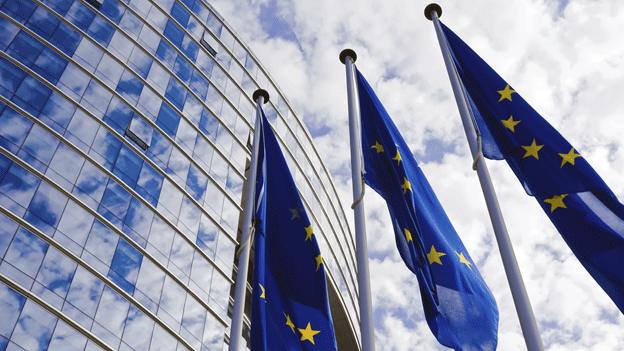
There was a time when the Scottish government said that "Scotland would automatically be a member of the European Union upon independence".
Deputy First Minister Nicola Sturgeon argued that case before a parliamentary committee in 2007, external.
But the Scottish government's position has changed over time.
The White Paper, external on independence acknowledges that "negotiations" would be required and that it would be for EU member states to decide how to proceed.

How would an independent Scotland secure EU membership?
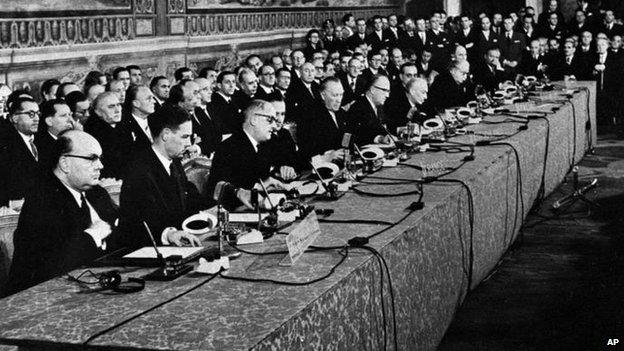
A process would need to be agreed.
Never before has part of an EU member state become an independent country and sought to remain in the Union.
There is no specific provision for this scenario in the EU Treaties.
The Scottish government believes that membership could be negotiated in the 18 months between a "Yes" vote and its target date for independence in March 2016.
It does not think a standard application under Article 49 of the Treaty of the European Union would be necessary because Scotland already applies EU law as part of the UK.
Instead it suggests the Treaty could be amended using the revising provision in Article 48.
The UK government thinks it is "unlikely" all 28 existing member states would agree to Article 48 being used in this way.
In an analysis paper it suggests that any process, external would be "lengthy and complex".

Could an independent Scotland be thrown out of the EU?
Mr Barroso made his comments during an interview with Andrew Marr
There are those who have suggested that a "Yes" vote in the referendum would put Scotland outside of the EU.
The Spanish Prime Minister, Mariano Rajoy, has taken that line as has the President of the European Council, Herman Van Rompuy and the President of the European Commission, Jose Manuel Barroso.
In a letter to a House of Lords committee, Mr Barroso said: "A new independent state would, by the fact of its independence, become a third country with respect to the EU and the Treaties would no longer apply on its territory."
In a BBC interview, Mr Barroso, external went further, suggesting that it would be "extremely difficult, if not impossible" for an independent Scotland to secure membership.
Scottish Finance Secretary, John Swinney, described that as a "pretty preposterous" position.
It has also been challenged by the former British judge at the European court of justice, Professor Sir David Edward.
In his opinion, external "EU law would require all parties to negotiate in good faith and in a spirit of cooperation before separation took place".

Might Scotland end up outside the EU even if there's a "No" vote?
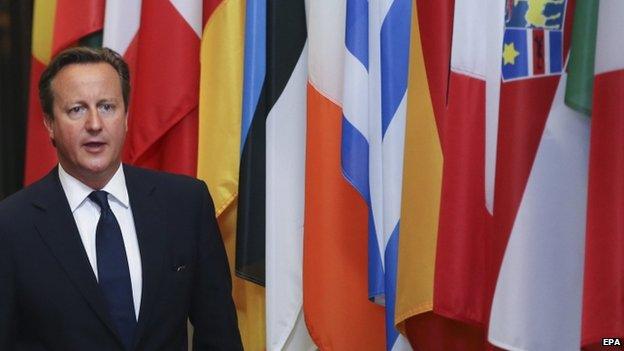
Scotland will still be in the EU as part of the UK if there's a "No" vote.
However, the Conservatives are promising to hold an in/out referendum on EU membership in 2017 if they win next year's general election.
The prime minister, David Cameron, wants to renegotiate the terms of UK membership before then. He intends to advocate continued membership.
The first minister, Alex Salmond, argues that growing support for the anti-EU party UKIP suggests there is still a significant risk of a vote for withdrawal.

Could Scottish membership be vetoed by one of the existing member states?
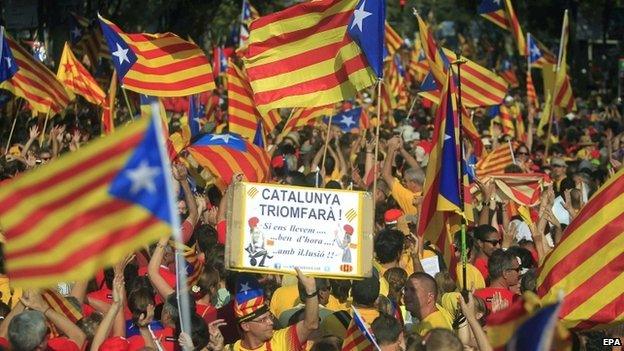
All 28 EU countries would need to approve Scottish membership.
The prime minister, David Cameron, has said he would "absolutely" support, external an independent Scotland's application if the referendum does not go his way.
It has been suggested that a country like Spain might make it difficult for Scotland to discourage the independence movement in Catalonia.
In an address to the College of Europe in Bruges, external, Mr Salmond set out why the Scottish government thinks it would be in the interests of all EU countries to grant Scotland membership.
Mr Salmond said that the alternative was....
"The fishing fleets of 12 countries being denied any access to Scottish waters and as a consequence, their access to Norwegian waters, which is also dependent on Scottish access
"160,000 EU workers and students, and of course voters, in Scotland suddenly uncertain about their status
"Five and a quarter million people ceasing to be EU citizens against their will - this alternative, as Sir David Edward points out, is clearly absurd. But it is more than absurd. There is simply no legal basis in the EU treaties for any such proposition. And it is against the founding principles of the European Union."

What would the terms of Scottish membership be?
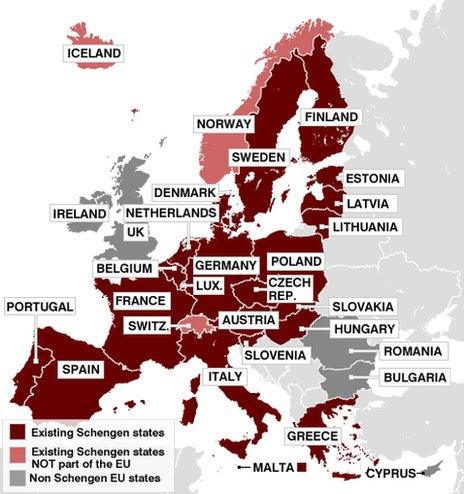
Map of Schengen area
The terms would need to be negotiated and agreed.
The Scottish government argues that it should be allowed to retain a share of the UK's rebate from budget contributions and all the UK's existing opt-outs.
That would mean staying out of the Euro and the Schengen travel area.
It also believes that it can negotiate a deal to allow an independent Scotland to continue to charge students from the rest of the UK tuition fees.
Their critics argue that international negotiations involve give and take and that Scotland is unlikely to get all that it wants.